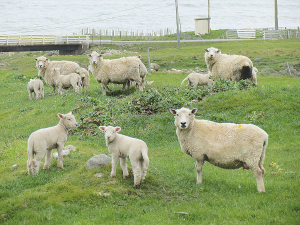Sheep production systems in New Zealand have adapted and evolved over the past 30 years to match the drivers of on-farm income.
While delivering the 2023 Alan Sevier Memorial Lecture at the University of Western Australia Institute of Agriculture, Massey University’s Professor Paul Kenyan explored how research coupled with technology transfer and farmer interaction influenced this evolution. Kenyon says lamb production drove farmer decision making.
“Research coupled with technology transfer and farmer interaction has driven the increases observed in ewe reproductive rate, lamb growth rates and carcass weights at slaughter,” he added. “While the national flock is significantly less than half of its 1980’s size, total industry carcass weight has only dropped by 14 per cent.”
Kenyon explained that the sheep industry in New Zealand was traditionally driven by course wool (above 30 micron) production. “However, with the relative and absolute value of wool falling, coupled with increased shearing costs, farmers have needed to adapt to ensure they remain economically viable – such as opportunities with importing shedding breeds like the Wiltshire.”
The lecture was attended by animal scientists and farmers. It also explored ewe lamb breeding, management to maximise multiple bearing ewe performance, targeted feeding to maximise return, alternative herbages, and efficiency drivers of the New Zealand system.
The evening ended on a light-hearted note, with the institute’s associate director Professor Phil Vercoe – a longtime research collaborator with Kenyon – admonishing his friend for referring to sheep as a ‘lawnmower’.
“If your PhD supervisor (UWA Adjunct Associate Professor Dean Revell) had been in the audience, he’d have gone apoplectic,” Vercoe said. “As you know, his great saying is: ‘Sheep aren’t lawnmowers, they’re mobile biochemical analysers’.”











